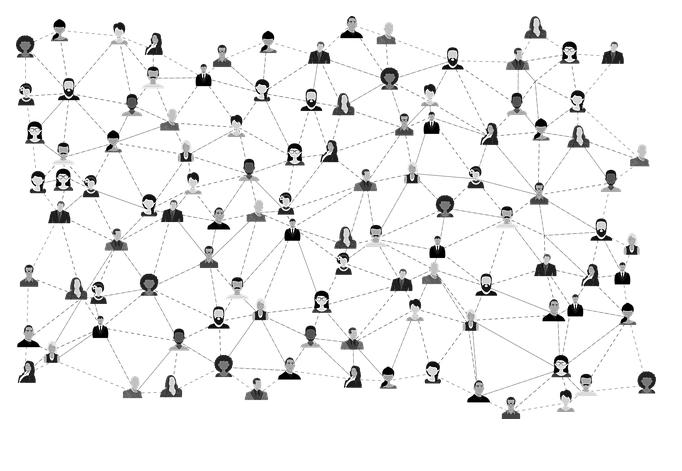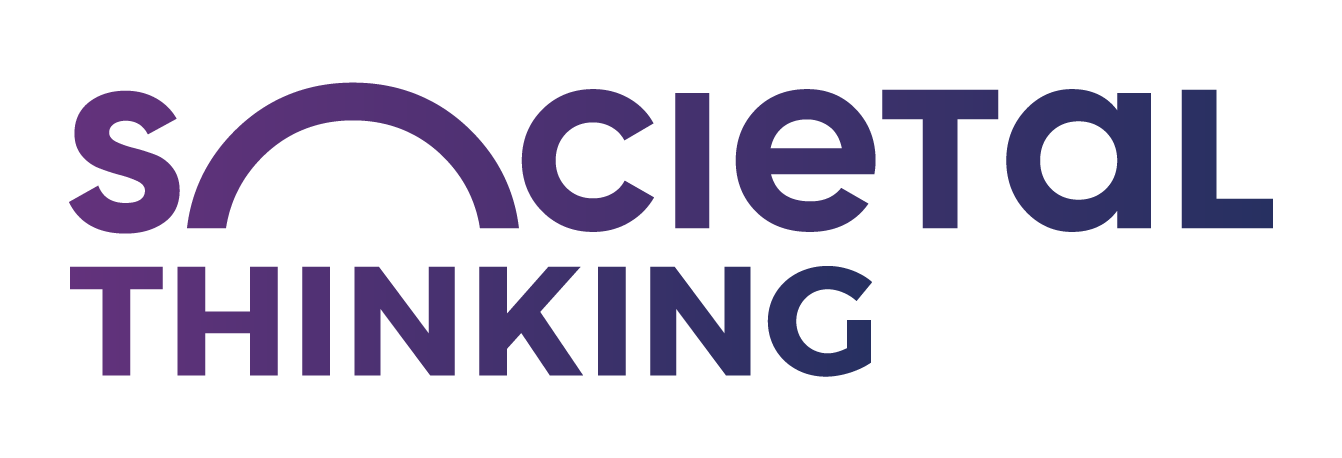
Just in the last two decades, the world has changed dramatically. People are more connected than ever, technology is evolving rapidly and our social issues are becoming increasingly pronounced. Even so, solutions to these social problems remain small, slow and outdated. Now, more than ever leaders need to reimagine wicked problems and redefine how they can be solved by the key actors of the society including communities, markets, Government and civil society. Societal Thinking is a way to reimagine and realise exponential social change. This systemic approach helps change leaders find new ways to solve social problems – by bringing together diverse sets of people, restoring their agency and providing them with accessible infrastructure that enables them to solve their own problems.
“ Exponential change ~ when every change induces more and rapid changes”
Societal Thinking enables
- Radical Inclusion: by reimagining how the key actors of the society (like communities, markets, government, civil society) interact with each other
- Enhanced Ability to solve: by creating assets & infrastructure that are open & accessible by all
- Diverse Solutions: by designing spaces that allow everyone to solve in the way that works best for them
Many social innovators around the globe are using Societal Thinking to reimagine how to solve problems more efficiently, what will work at scale, how diverse actors can come together and how communities can be empowered.
What all of them have in common are a few mindset shifts:
- How to scale what works or Find what works at scale
Just as a thousand mice don’t make an elephant, replicating what works many times over may not mean that it works at scale. For things to work at scale, they need to be designed to work at scale.
For example, A program to build the capacity of teachers from 100 schools may work well with field staff giving personal support to each teacher. Scaling to 100,000 schools by replicating the same model would mean an army of field staff, increased cost of managing them and most often a fall in effectiveness/impact. A solution that works in 100,000 schools has to be built very differently from the one that works in 100 schools.
- Think of Diversity as a challenge or Diversity as the solution
Traditionally, diversity is seen as a challenge to scale a one-size-fits-all solution. But, complex societal problems can’t be solved by such solutions. They need solutions that work in a local context, with the support of local organisations and communities. When local communities have the ability to solve problems efficiently and in a way that serves them best, diversity paves the way to solve at scale.
For example, an organisation working on healthcare delivery in rural Bihar (A state in India) knows best the critical needs of their community. If they have access to open knowledge around every disease and the tools to impart and extend that knowledge easily, they can decide what they need most and how to serve their communities faster and more efficiently. They don’t need to invest in developing the knowledge or building the tools, and instead, can invest their resources and energy in understanding and serving the communities better.
- Build capacity to adopt or build ability to solve
No one organisation can solve complex societal problems, no one solution can do so either. Solving at scale, societal scale requires many different types of solvers and many different types of solutions. For a change leader, this means investing in ways that allow for re-application instead of replication, enabling diverse solvers to build solutions that work for them instead of copying a fixed solution.
For example, If one wanted to put a book in every child’s hand, how long would it take for one organisation to create millions of contextual stories in every language read in the world? StoryWeaver made their content available under open licence, made tools available to create/modify/build stories and soon people started creating highly contextual reading solutions – from different languages to different form factors to different accessibility options.
Societal Thinking has manifested in a variety of ways to induce exponential change:
- as blueprints that help governments reimagine the development narrative
- as reusable building blocks (like legos) that can be used in many different combinations to accelerate the rate of building a solution
- as Societal Platforms, audacious endeavours (e.g. quality healthcare for all) that accelerates social change at population scale by building open technology, inspiring co-creation and orchestrating ecosystems.
Learn more about Societal Thinking here.
